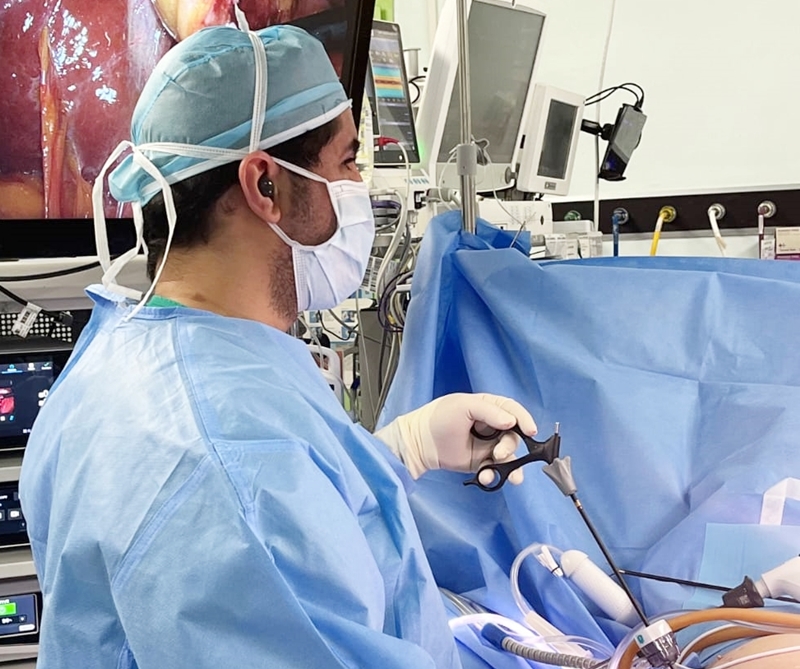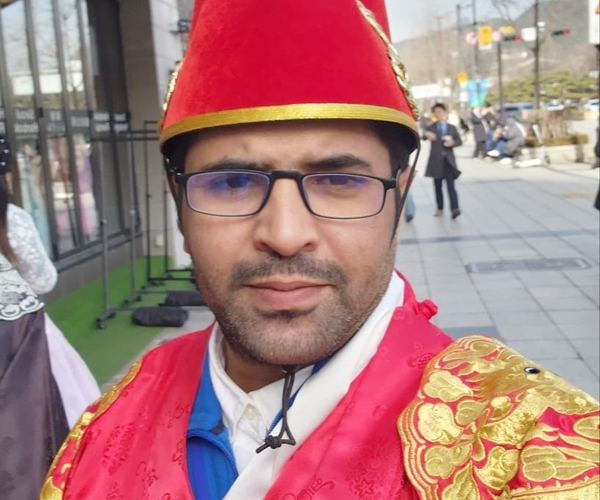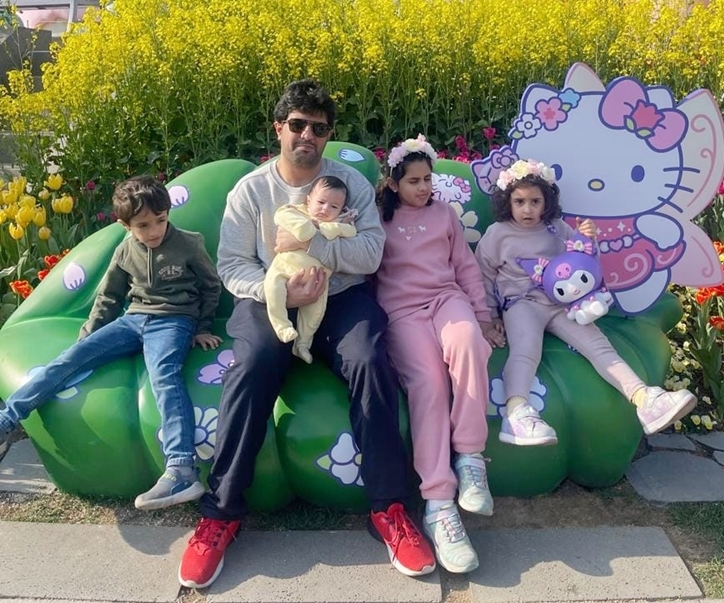-
- Global AMC MENU
- NEWS
- HEALTH
- PEOPLE
- Introduction
Dr. Mohammed Alotaibi from Saudi Arabia
- ▲Dr. Mohammed Alotaibi
I am a specialist in hepatobiliary and pancreatic surgery. Since January last year, I have been training at Asan Medical Center, covering advanced surgeries, such as liver transplantation using small grafts, robotic surgery for pancreatic and liver cancer, and portal and superior mesenteric vein resection for advanced pancreatic cancer.
I wish to build on my training experience to introduce robotic surgery in hepato-biliary-pancreatic diseases and expand the scope of living donor liver transplantation when I return to Saudi Arabia.

▲#Surgery #Nervous #Focus
Active adoption of new technologies in treatment at Asan Medical Center
I was amazed to see how they use 3D models to visualize the anatomy during liver transplantation, which involves many blood vessels and intricate anatomy, allowing surgeons to optimize their surgical plans in advance. The widespread use of robotic surgery in hepato-biliary-pancreatic surgery was also impressive. Moreover, I learned a lot from constant research by medical professionals in their efforts to improve the quality of life of patients after surgery through minimally invasive procedures. Another notable point was big data and artificial intelligence technology, which were actively utilized to analyze patient imaging and develop personalized treatment plans.
Impressed by the seamless collaboration across departments
Severe cases of liver, pancreatic, or biliary tract cancer often require in-depth review and discussion of treatment strategies. I saw specialists from diverse fields, including Divisions of Hepatobiliary and Pancreatic Surgery, Liver Transplantation and Hepatobiliary Surgery, Gastroenterology, and Oncology and Departments of Radiation Oncology, Radiology, and Pathology, working together at the Multidisciplinary Cancer Care Center. In addition to the multidisciplinary treatment, they held weekly consultation meetings where specialists from all relevant departments shared optimal treatment approaches and outcomes for each patient. I felt the strength of Asan Medical Center came from such organized communication across departments.

▲Touring the palace in the king’s clothes

▲#With my family at Everland #MyLovedOnes
A memorable Chuseok holiday with a Korean colleague’s family
During last year’s Chuseok, Korean Thanksgiving Day, a Korean colleague invited me to his home. I joined Charye, a memoraial service for ancestors, in the morning, learning what Charye Table meant and how to bow. I also tried songpyeon (half-moon-shaped rice cake), and the honey-filled ones were really tasty (laughs). We celebrate the Islamic holiday called Eid al-Fitr in Saudi Arabia, where families and relatives gather to worship together and share a feast of lamb and rice. I thought the cultures of the two countries were different but similar in some ways. The memory of experiencing traditional Korean culture during my training will linger a long time.
▲#My Mentor #With my academic advisor, Professor Dae Wook Hwang
Wishing to contribute to the advancement of clinical and translational research in Saudi Arabia
During my training, I also learned a lot about the research infrastructure at Asan Medical Center, centered around the Asan Institute for Life Sciences. I was impressed by their involvement in various genetic and stem cell studies, including clinical research with numerous global institutions. While Saudi Arabia has institutions playing a leading role in clinical and translational research, I believe it is still developing in general. After I finish my training and return to Saudi Arabia, I wish to contribute in advancing clinical and translational research, along with expanding living donor transplantation and robotic surgery in hepato-biliary-pancreatic diseases. I plan to continue researching surgical techniques using artificial intelligence as well.












